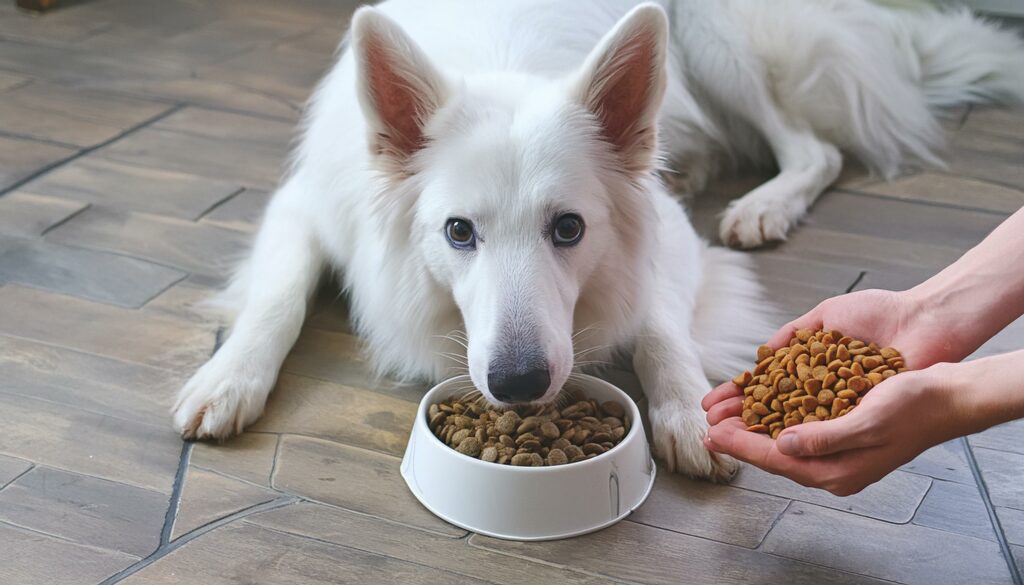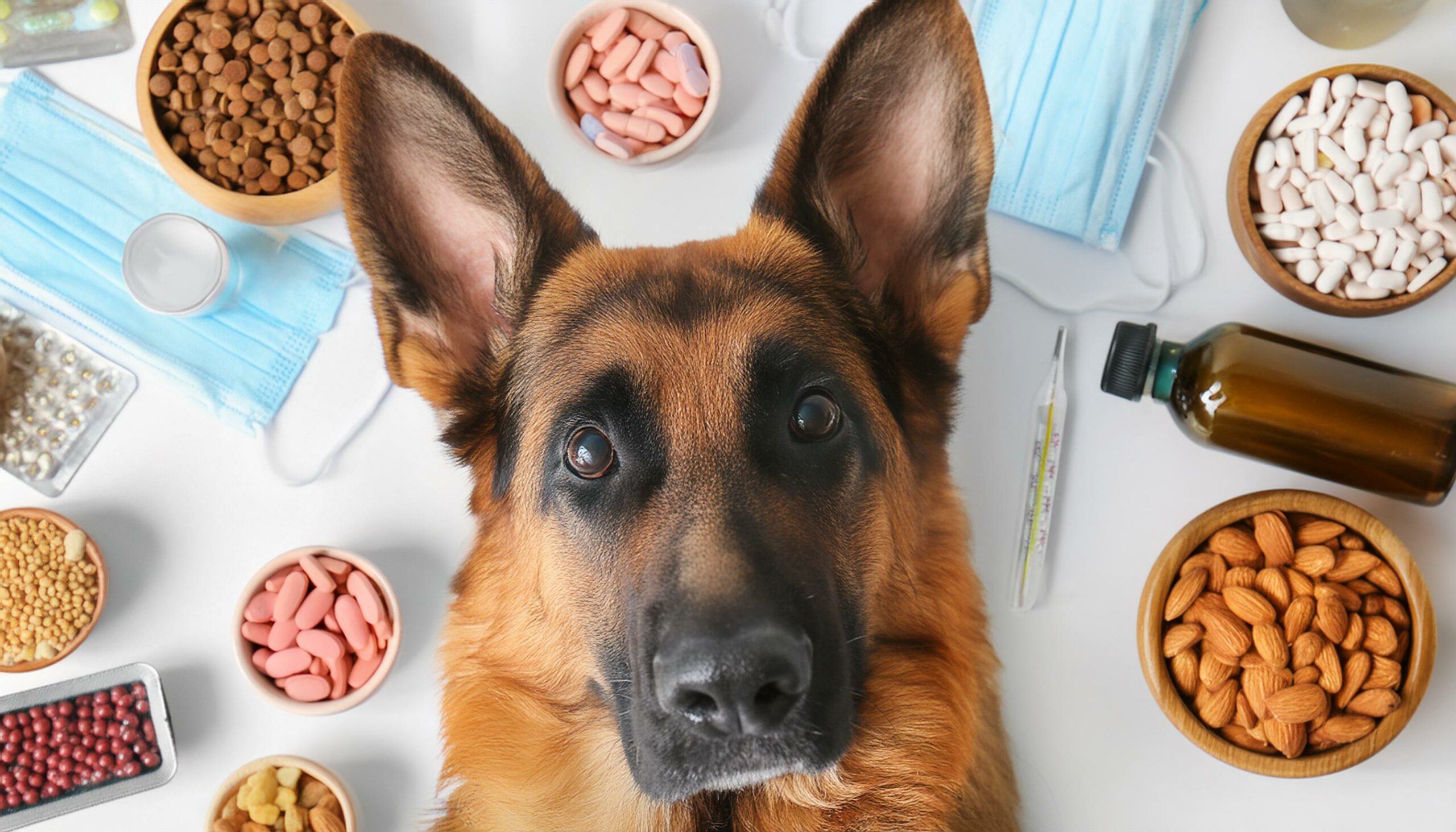German Shepherds are large, active dogs known for their agility, strength, and unwavering loyalty. Originally bred as herding dogs, they are now widely employed in various roles, including police and military work, search and rescue operations, and as loving family pets. These intelligent and energetic dogs require a balanced diet to support their robust physique and active lifestyle.
Understanding the Dietary Needs of German Shepherds
Basic Nutritional Requirements
Like all dogs, German Shepherds require a diet rich in essential nutrients such as protein, fats, carbohydrates, vitamins, and minerals. Protein is particularly important for muscle development and maintenance, while fats provide a concentrated source of energy. Carbohydrates serve as a secondary energy source, supporting overall health and vitality.
Factors Influencing Feeding Frequency
Several factors influence how often you should feed your German Shepherd, including age, activity level, metabolism, and overall health. Puppies have higher energy requirements and faster metabolisms, necessitating more frequent meals compared to adult dogs. Similarly, active or working German Shepherds may require additional feedings to sustain their energy levels.
Feeding Schedule for German Shepherds

Puppies (0-6 Months)
During the puppy stage, German Shepherds undergo rapid growth and development, necessitating a specialized feeding regimen. Puppies should ideally be fed three to four times a day to meet their increased energy needs. Divide their daily portion into multiple meals to prevent overeating and aid digestion.
Adolescents (6-12 Months)
As German Shepherds transition into adolescence, their growth rate begins to slow, but they still require a nutrient-dense diet to support muscle and bone development. Gradually reduce the number of feedings to two to three times a day, ensuring they receive adequate nutrition without overfeeding.
Adults (1 Year and Older)
Once your German Shepherd reaches adulthood, typically around one year of age, you can establish a regular feeding schedule of two meals per day. Spacing out meals evenly throughout the day helps maintain stable energy levels and prevents hunger-related behavioral issues.
Tips for Feeding Your German Shepherd
Portion Control
Avoid overfeeding your German Shepherd, as excess weight can lead to various health problems, including joint issues and obesity. Follow feeding guidelines provided by your veterinarian or pet food manufacturer, adjusting portions based on your dog’s activity level and body condition.
Choosing the Right Food
Selecting a high-quality dog food formulated for large breeds is essential for meeting your German Shepherd’s nutritional needs. Look for products that list meat as the primary ingredient and avoid fillers or artificial additives. Consult your veterinarian for personalized recommendations based on your dog’s age, health status, and dietary preferences.
Monitoring Weight and Adjusting Portions
Regularly monitor your German Shepherd’s weight and body condition to ensure they maintain a healthy physique. Adjust portion sizes as needed to prevent under or overfeeding, taking into account factors such as age, activity level, and metabolism. Seek guidance from your veterinarian if you’re unsure about the appropriate portion size for your dog.
Common Feeding Mistakes to Avoid
- Free-feeding: Leaving food out all day can lead to overeating and obesity. Stick to a structured feeding schedule to regulate your German Shepherd’s calorie intake.
- Feeding table scraps: Human foods can be harmful to dogs and may cause digestive upset or nutritional imbalances. Avoid feeding your German Shepherd scraps from the table and stick to a balanced diet formulated for their specific needs.
Importance of Water Intake
In addition to proper nutrition, ensuring your German Shepherd has access to clean, fresh water at all times is essential for their overall health and well-being. Hydration plays a crucial role in digestion, temperature regulation, and organ function, so encourage your dog to drink water regularly throughout the day.
Conclusion
Maintaining a consistent feeding schedule tailored to your German Shepherd’s age, activity level, and nutritional needs is crucial for their health and vitality. By providing a balanced diet, monitoring portion sizes, and avoiding common feeding mistakes, you can ensure your beloved canine companion leads a happy, healthy life.
FAQs
How often should I feed my German Shepherd puppy?
German Shepherd puppies should be fed three to four times a day to meet their high energy requirements during the growth phase.
Can I feed my adult German Shepherd once a day?
While some adult dogs may thrive on one meal a day, it’s generally recommended to feed them twice daily to maintain stable energy levels and prevent hunger-related issues.
What should I do if my German Shepherd is overweight?
Consult your veterinarian for personalized advice on managing your dog’s weight, including dietary modifications and exercise recommendations.
Are there any foods I should avoid feeding my German Shepherd?
Yes, certain foods such as chocolate, grapes, and onions can be toxic to dogs and should be avoided. Stick to a balanced diet formulated for your German Shepherd’s specific nutritional needs.
How can I tell if my German Shepherd is getting enough to eat?
Monitor your dog’s body condition and energy levels regularly. If they maintain a healthy weight and exhibit normal activity levels, they are likely receiving adequate nutrition.
